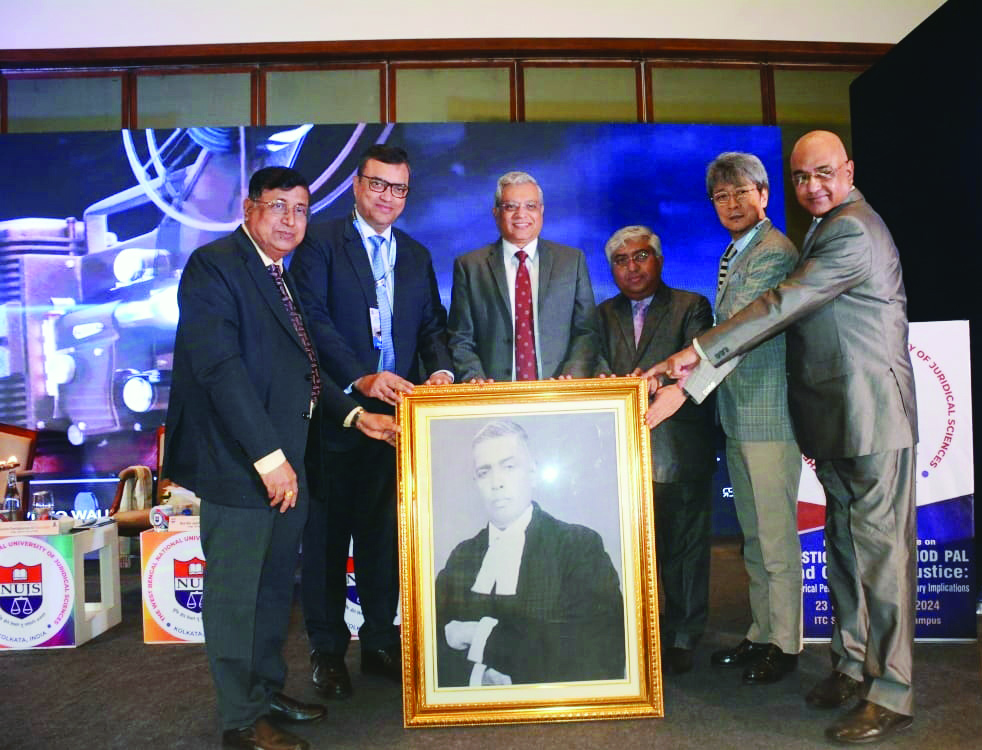State gives Rs 1 crore to WBNUJS in honour of India’s ‘Tokyo Trial’ judge

Kolkata: The state government has given Rs 1 crore to West Bengal National University of Juridical Sciences (WBNUJS) to honour the late Justice Radha Binod Pal, the only Indian judge from Calcutta High Court who was part of the Tokyo Trials where his dissenting opinion is said to have upheld the principles of fairness, impartiality and legality.
Late Justice Pal was the only Indian representative in the International Military Tribunal of the Far East, usually referred to as Tokyo Tribunal, that was set up to try Japanese leaders for war crimes following the country’s defeat in the Second World War. Justice Pal was one of the judges who gave a dissenting opinion in the majority judgement.
Speaking at the sidelines of an international conclave honouring Justice Pal, organised by WBNUJS, Nirmal Kanti Chakrabarti, V-C of the university told the press that the West Bengal government gave rupees one crore to WBNUJS to honour Justice Pal.
A Radha Binod Pal chair has been formed at the university. He said this money has been fixed and the interest derived would be used to organise various activities which includes lecture series in his memory. We will publish a book which will be a compilation of research work on Justice Pal. This will be published by Springer- International Publisher, he said.
Justice Pal’s grandson, Sudhi Binod Pal said the state government was requested to name Beadon Street in Kolkata after Justice Pal who resided there for a considerable period of time.
Also, he requested that a park in New Alipore near another residence of his grandfather be named after him. Further, Sudhi Pal said that the family will request the Centre if Justice Pal’s artefacts can be preserved at the Victoria Memorial Hall.
Supreme Court judge Justice Dipankar Datta said judges don’t write dissenting judgements necessarily to point out flaws or loopholes in a judgement but to give an absolutely new alternative view of the entire matter. Dissenting opinions must not lose their relevance in a democratic system, he said.



